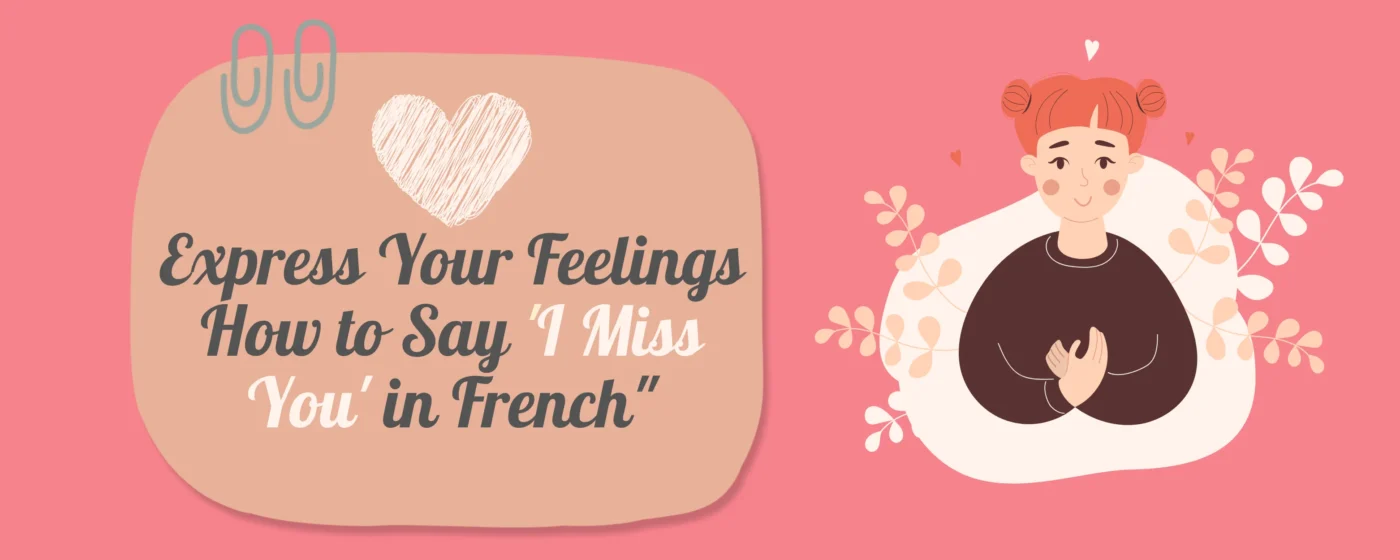Tired of fumbling for words during simple daily conversations in French? Unlock the power of routine vocabulary! From bonjour to bonne nuit, these everyday words are your secret weapon to fluent and confident French.
So, let’s ditch the awkward silences and dive into the world of French fluency, one routine word at a time!
Why Learn Daily Routine Words in French?
While it might seem mundane, mastering everyday French vocabulary can dramatically boost your language skills. Imagine confidently greeting a French friend with a bright “Bonjour!” or smoothly discussing your daily routine without stumbling.
Everyday French, Extraordinary Results:
- Effortless Conversations: These words form the backbone of everyday interactions. For example, instead of fumbling for the right words to ask for coffee, you can confidently say “Je voudrais un café, s’il vous plaît”.
- Cultural Understanding: Delve deeper into French culture by understanding common expressions and idioms. For instance, knowing the phrase “Bonne journée” (Have a good day) allows you to participate in everyday social interactions.
- Improved Listening Skills: Familiar vocabulary enhances your ability to comprehend spoken French. When you recognize words like “travail” (work) or “manger” (eat), it becomes easier to follow conversations and understand the context.
Improve your French vocabulary with these 30 funny French words and phrases that will add humor and charm to your conversations.
Morning Routines: Essential French Vocabulary
Common Morning-Related French Phrases
Here are some common French phrases related to morning routines, along with examples to aid your understanding. Let’s go!
| French Phrase | Example |
|---|---|
| Se réveiller (to wake up) | Je me réveille souvent tôt. (I often wake up early.) |
| Se préparer (to get ready) | Je me prépare rapidement le matin. (I get ready quickly in the morning.) |
| Prendre une douche (to take a shower) | Je prends une douche froide le matin. (I take a cold shower in the morning.) |
| Se laver le visage (to wash one’s face) | Je me lave le visage à l’eau froide. (I wash my face with cold water.) |
| Se brosser les dents (to brush one’s teeth) | N’oublie pas de te brosser les dents. (Don’t forget to brush your teeth.) |
| Prendre le petit-déjeuner (to have breakfast) | Je prends mon petit-déjeuner à 8 heures. (I eat breakfast at 8 o’clock.) |
| Manger des céréales (to eat cereal) | J’aime manger des céréales avec du lait. (I like to eat cereal with milk.) |
| Aller au travail (to go to work) | Je vais au travail en métro. (I go to work by metro.) |
| Lire le journal (to read the newspaper) | Je lis le journal pendant le petit-déjeuner. (I read the newspaper during breakfast.) |


Work & Afternoon Vocabulary for Daily Activities
Here are some common French phrases related to daily activities:
| French Phrase | Example |
|---|---|
| Se lever (to get up) | Je me lève à 7 heures tous les matins. |
| Boire du café (to drink coffee) | Je bois du café noir le matin. |
| Déjeuner (to have lunch) | Je déjeune à midi. |
| Faire une pause (to take a break) | Je fais une pause café à 10 heures. |
| Travailler (to work) | Je travaille dans un bureau. |
| Finir le travail (to finish work) | Je finis le travail à 18 heures. |
| Dîner (to have dinner) | Je dîne vers 20 heures. |
| Se détendre (to relax) | Je me détends en lisant un livre. |


The French place a strong emphasis on work-life balance, and lunch is a central part of their daily routine. Unlike many other cultures, the French typically take a longer lunch break, often enjoying a leisurely meal at a restaurant or café. This break allows them to relax, socialize, and recharge before returning to work!
Evening and Relaxation: Must-Know French Words
Want to express your evening plans in French, but don’t know how? We got you! Here are some more French vocabulary words and phrases related to evening routines:
| French Phrase | Example |
|---|---|
| Regarder la télé (to watch TV) | Je regarde la télé le soir. |
| Lire un livre (to read a book) | J’aime lire un livre avant de dormir. |
| Écouter de la musique (to listen to music) | J’écoute de la musique pour me détendre. |
| Jouer aux jeux vidéo (to play video games) | Mon fils aime jouer aux jeux vidéo. |
| Aller au cinéma/ restaurant/ théâtre/ concert/ bar (to go to the cinema/ restaurant/ theater/ concert/ bar) | On va au cinéma le week-end.On va au restaurant une fois par semaine.J’aime aller au théâtre pour voir des pièces de théâtre.On va au concert de notre groupe préféré.On va au bar pour boire un verre. |


Tips for Talking About Evening Plans in French
Want to sound like a native French speaker when discussing your evening plans? Here are a few tips:
- Embrace the Informal: Don’t be afraid to use informal language with friends. Phrases like “On pourrait aller boire un verre?” (Shall we go for a drink?) or “Ça te dit d’aller au ciné?” (Fancy going to the cinema?) are perfect for casual outings.
- Use Slang (with Caution): Slang can add a touch of coolness to your conversations, but use it wisely. Phrases like “kiffer” (to enjoy) or “trop cool” (very cool) can be used in informal settings, but be mindful of the context.
- Play with Idioms: French is rich in idioms, and using them can make your language more colorful. For example, “C’est la fête!” (It’s a party!) or “On va se faire plaisir” (We’re going to treat ourselves) can add a fun and playful tone to your conversations.
- Practice with a Friend: Practice makes perfect! Find a French-speaking friend or language exchange partner to practice your conversation skills. Role-play different scenarios, such as planning a dinner party or a night out.
Stop Guessing, Start Speaking!
With our expert tutors, you’ll master the words you need to speak French confidently!
Expressing Time and Frequency in French
Here are 10 common time-related words and phrases you can use to describe your daily routine in French:
| French Phrase | Example |
|---|---|
| Tous les jours (every day) | Je me lève tous les jours à 7 heures. |
| Le matin (in the morning) | Je prends mon petit-déjeuner le matin. |
| L’après-midi (in the afternoon) | Je travaille l’après-midi. |
| Le soir (in the evening) | Je dîne le soir vers 20 heures. |
| La nuit (at night) | Je dors la nuit. |
| Souvent (often) | Je vais souvent au cinéma. |
| Parfois (sometimes) | Parfois, je lis un livre le soir. |
| Jamais (never) | Je ne mange jamais de fast-food. |
| Toujours (always) | Je suis toujours occupé. |
| De temps en temps (from time to time) | De temps en temps, je fais du sport. |


Tips to Master French Vocabulary for Daily Life
Want to boost your French vocab? Here are some fun and effective tips:
- Flashcard Frenzy: Create colorful flashcards with words and their translations. Quiz yourself regularly.
- Speak Up, Stand Out: Practice saying words and phrases out loud. The more you hear yourself, the better you’ll remember.
- Language Buddies: Find a language partner to practice with. It’s a great way to learn from each other and stay motivated.
- Consistency is Key: Little and often is better than big bursts. Dedicate a short time each day to learning new words.
While these tips can help you on your language journey, consider exploring La Forêt French Class. Our immersive courses break down French vocabulary into easy-to-understand lessons. Plus, our personalized guidance can help you master practical language use, making your French learning experience both effective and enjoyable.
Why wait? Start your French language adventure today!
Conclusion
Ready to turn your French dreams into reality? Start small, start now. Mastering everyday vocabulary is the first step to fluent French. From morning coffee to evening relaxation, French words can weave their magic into your daily life. So let’s embark on this linguistic adventure together. Bon courage!
Before sleeping, impress your French-speaking friends with different ways to say Good Night in French and sound more natural.
Did You Know?
- Bonne journée, his simple phrase, meaning “Have a good day”, is a versatile way to greet someone, bid farewell, or even express well wishes!
- Coffee culture is deeply ingrained in French society. Words like “café au lait” (coffee with milk) are essential for any coffee enthusiast.
Frequently Asked Questions
1. How do you describe your daily routine in French?
Ans: Here’s a simple example of how to describe your daily routine in French:
Je me lève tôt le matin. Après le petit-déjeuner, je vais au travail. Le soir, je dîne avec ma famille et je regarde la télévision. Avant de dormir, je lis un livre.
Translation: I get up early in the morning. After breakfast, I go to work. In the evening, I dine with my family and watch TV. Before going to bed, I read a book.
2. What are the French days of the week?
Ans: Here are the days of the week in French:
Lundi (Monday), Mardi (Tuesday), Mercredi (Wednesday), Jeudi (Thursday), Vendredi (Friday), Samedi (Saturday), Dimanche (Sunday).





